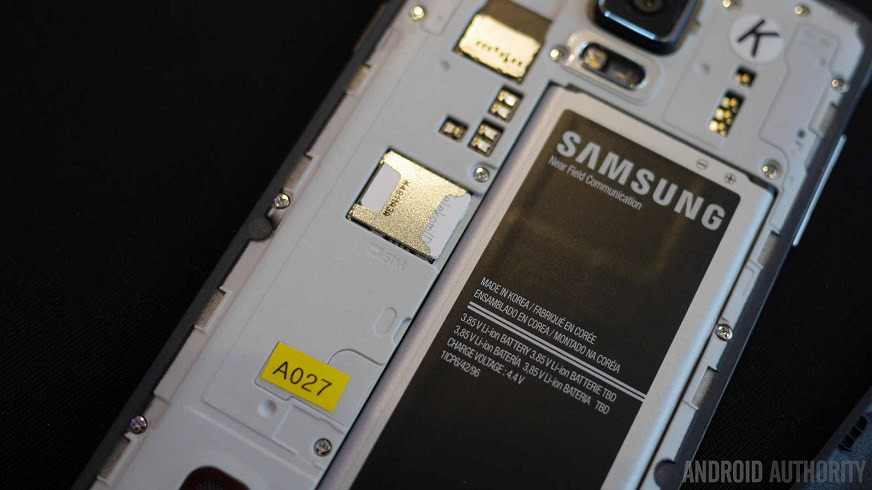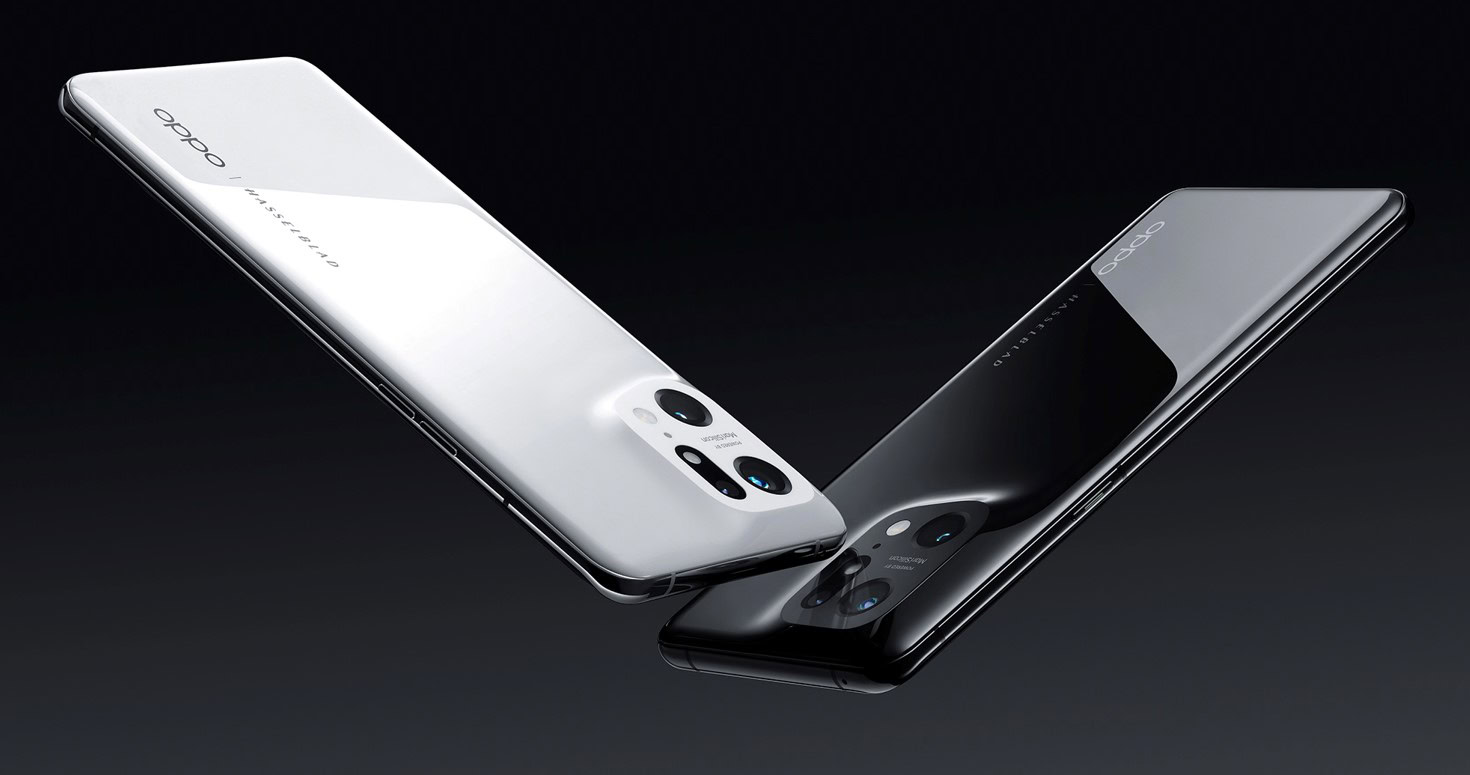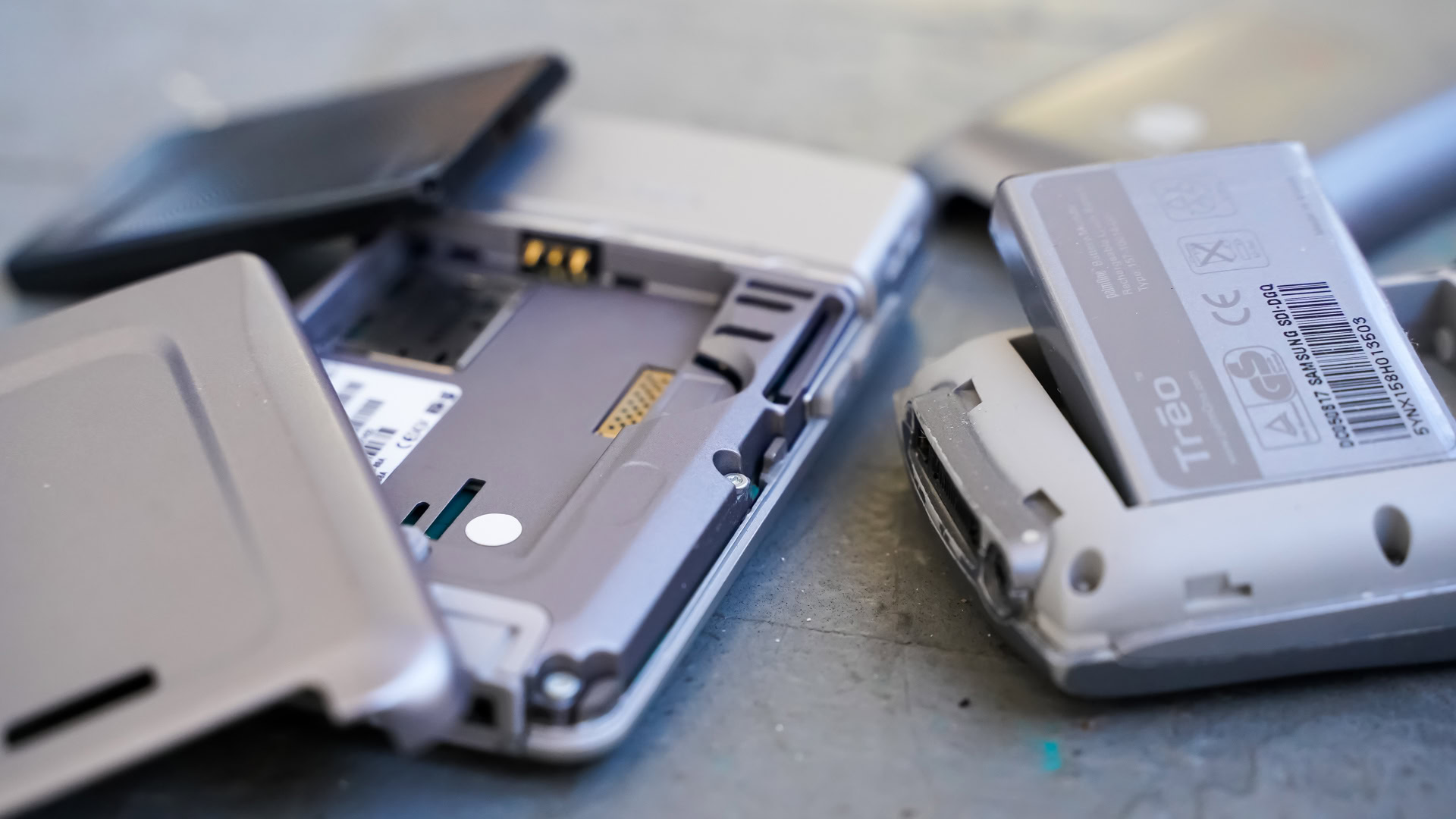Affiliate links on Android Authority may earn us a commission. Learn more.
Daily Authority: 🔋 Replaceable phone batteries?
Published onApril 1, 2022

👋 Good morning! Paula here, covering for Tristan while he adventures to lands unknown. He’ll be back at the helm next week. Also, it’s April Fools’ Day today!
Before we hop into today’s tech events, we’d like to thank OPPO for sponsoring this newsletter!

The OPPO Find X5 Pro brings a new sense of futuristic design by sporting stylish ceramic curves that break from the glass-and-metal tradition. The MariSilicon X Imaging NPU drastically increases both its videographic and photographic abilities — especially in low-light situations — and it’s all powered by a Qualcomm Snapdragon 8 Gen 1 chipset.
Head over to OPPO to learn more about the Find X5 Pro and get this slick new flagship in your pocket.
Return of the replaceable battery?
A decade ago, replaceable batteries in smartphones — and other tech — were a given. These days most of our phones, tablets, and other gadgets have sealed batteries, which makes repairing or replacing a battery a challenge. There are still some phones with removable batteries out there, but they’re generally mid-rangers at the lower end of the price spectrum. Now new EU legislation, which could come into force as soon as January 1, 2024, could mandate that everything from smartphones and tablets to ebikes must have replaceable batteries.
Why aren’t batteries currently replaceable?
The move to sealed batteries came with the advent of slimmer, sleeker phones designed to keep out dust, dirt, and water.
- A sealed battery unit usually means a slimmer design.
- It’s also a lot easier to waterproof a phone if the battery unit is sealed.
- Then there’s the fact that manufacturers can charge for repairs if you can’t easily repair/replace the battery yourself — or sell you a whole new phone if the battery’s finished.
Why does this move matter?

This could mean one of two things:
- A huge design shakeup for the mobile tech industry, with manufacturers like Apple and Samsung forced to redesign their devices to ensure batteries are easily accessible and replaceable. This could eventually happen globally, not just in Europe.
- Or, less likely, certain phone brands — though it would really be almost all smartphones — would no longer be able to sell to the European market.
- The new legislation states that batteries must be able to be safely removed and replaced “using basic and commonly available tools” and “without causing damage to the appliance or batteries,” with the onus on manufacturers to provide documentation for removal and replacement of batteries.
What’s the reason for the new legislation?
This is, first and foremost, a step to protect the environment and a war on e-waste.
- The new regulations are also a push towards creating a more “circular economy” where we’re recycling almost all existing materials rather than mining new ones.
- Suggested targets are already in place for collecting used portable batteries: 45% by the end of 2023, rising to 80% by the end of 2030.
- But also, why shouldn’t we be able to access batteries in our devices for repair or replacement? It would mean fewer phones thrown in the trash due to a faulty battery…
Will this mark a change in the way smartphones are designed worldwide, and could you be holding an Apple or Samsung phone with a replaceable battery in 2024? We’ll have to wait and see.
Roundup
📱 After a China-only spell, the OnePlus 10 Pro launched globally yesterday, and our review is in, plus see the launch here (Android Authority).
👀 Nothing mocks current Android phones with an obvious April Fools’ Day joke (Android Authority).
🔋 Samsung and iFixit will help you self-repair your phone, so you can order genuine Samsung parts for your phone/tablet and make repairs yourself, including battery repairs, but no name or planned launch date for the service yet (Android Authority).
😬 Microsoft’s Your Phone app is having an identity crisis, been rebranded with two different names across the PC and Play stores (Android Authority).
🍎 Apple rushes out patches for two zero-days threatening iOS and macOS users: that’s five zero-days this year so far (Ars Technica).
🎧 HUAWEI wants to put earbuds inside a smartwatch: Seems like a strange idea, but could actually be pretty useful. It’s just a patent for now, so no guarantee it will ever actually be a real product (TechRadar).
⚡ An engineer just made the world’s first Android phone with a working Lightning port (Engadget).
🎮 E3 2022 has officially been canceled: Following cancellation of its in-person event, ESA has now nixed the digital event too, promising a return in 2023 with “a reinvigorated showcase” (The Verge).
☄️ “Potentially hazardous asteroid” will make its closest-ever approach to Earth today, traveling at around 29,800 mph, but will still miss us by around 4.6 million miles (Live Science).
🧬 Scientists have finally mapped the whole human genome, achieving a “gapless genome sequence” that accounts for 8% of genetic information we didn’t previously know; could provide insights into our evolutionary journey and disease susceptibility (Gizmodo).
🤔 “Does anybody actually wish they could have been born in a time without internet?” (r/nostupidquestions).
Friday Fun
It’s April 1, otherwise known as April Fools’ Day, so here are some of our favorite pranks from years gone by:
- Back in 2007, there was Google TiSP (Toilet Internet Service Provider), the fictitious free broadband service that supposedly used a standard toilet and sewage lines to provide free internet.
- In 2013, Google Nose was the new “scentsation” in search, or so Google would have had us believe.
- Pocket Lint’s 2014 prank saw Google Glass Solo, the Glass monocle for the debonair gentleman, make its debut.
- Who could forget Samsung’s ExoKinetic charger in 2016, which promised to charge your phone using movement alone.
- A lot of work went into the Google Tulip video in 2019, with loads of technical details here to enjoy.
- Last year, Lego SmartBricks fooled parents worldwide into thinking they’d never have to step on a Lego brick again.
- There’s already some fun stuff this year, from Razer’s HyperSense haptic suit to the NZXT H-AND mobile gaming PC, and Heardle’s rickrolling prank, and hopefully, Google will get back in the game this year too.
Also: Here’s something many people thought was an April Fools’ Day joke this year:
- New Scientist published an article (on April 1 in Australia) about a magnetic slime robot that can enter the human body to retrieve accidentally swallowed items.
- And it’s real!
- Mind you, so are the Dyson Zone headphones, which surprised us all.
Cheers,
Paula Beaton, Copy Editor.
